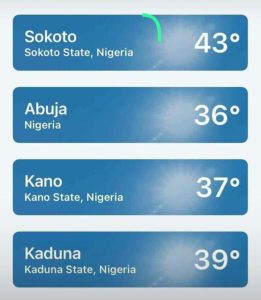By Amanatullah Yusuf

Shuaib Fatima finds herself caught in a balancing act between her academic pursuits and fasting. Her mornings are always dedicated to classes, but the fast-induced headaches often disrupt her study routine.
Fatima grapples with the challenge of lecturing amidst a demanding schedule that includes transitioning between her hostel and classes, all while fasting.
The 100-level Nursing student has been unable to read since the commencement of Ramadan because of either her headaches or the time at which she finishes her lectures which is when the toughest phase of a day in Ramadan sets in.
“Fasting has impacted my reading and sleep routines significantly. I must wake up at 4 am and often find it challenging to get additional rest before night due to the 8 am lecture, which occasionally extends until 6 pm.
“I would even appreciate it if the 4 pm-6 pm lectures could be eliminated, as my first encounter attending such a lecture during Ramadan was quite challenging.”
Balancing Fasting with Lecture under Harsh Sun
In an interview with The News Digest Press, Adetona Amina, a 300-level Physical and Computer Science student, shares Fatima’s sentiment. “Fasting under the relentless sun makes attending classes a daunting task,” she laments.
“The sun and dehydration get to me, and I instantly become weak throughout the day leaving little to no room for reading for that day because managing Ramadan and classes with this hit sun has to be the hardest.
Despite her morning lectures, the noon trek back to the hostel becomes an endurance test under the blazing sun, sapping energy reserves crucial for academic engagement.
The challenging conditions faced by students fasting in the North, particularly at UDUS, during Ramadan are well-known, attributed largely to the region’s high temperatures.
In Sokoto, for instance, the annual average temperature of 28.3°C (82.9°F) makes it among Nigeria’s hottest cities, compared to Abuja’s 26.0°C (78.9°F) and Ibadan’s 25.9°C (78.5°F) averages.
Research indicates that Sokoto’s hot season lasts approximately 2.2 months, from March 16 to May 22, with daily highs exceeding 101°F.
Meanwhile, April stands out as the hottest month in Sokoto—reaching an average high of 104°F and a low of 80°F.
School’s Second Circular Sparks Despair Over Ramadan Working Hours
Speaking with The News Digest Press, Abdulganiyu Azeez, a 400-level law student, expressed dismay over the circulars issued by the school management.
Initially, a circular was released stating that staff and faculty would work from 8:00 am to 3:00 pm from Monday to Thursday, with Friday’s hours ending at noon.
However, a subsequent circular was issued to clarify the interpretation of the first circular which Abdulganiyu believes that fasting and attending lectures simultaneously will be challenging.
“I find myself struggling with fatigue, which impedes my nighttime studying. What used to be a time for night classes and studying has now turned into a time for sleep,” he said.
